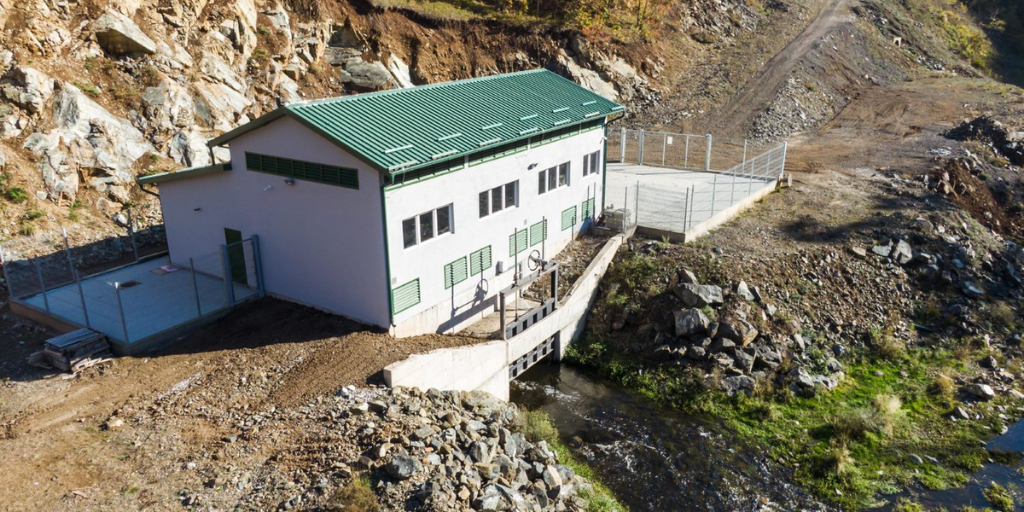EU’s house bank breached environmental standards on Serbia hydropower project
The European Investment Bank (EIB) breached its environmental standards during the approval of the Komalj small hydropower plant in Serbia, the Bank’s Complaint Mechanism has concluded, in a report published today. (1)
14 April 2023

Photo: Dobrica Mitrović
The finding comes as a result of a complaint submitted in January 2022 (2) by CEE Bankwatch Network and the Ecological Association ‘’Rzav’’ from Serbia on the Beli Kamen and Komalj plants, both on the Crni Rzav river. The plants are in the Zlatibor candidate Emerald site, first proposed in 2006, and in Zlatibor Nature Park, established in 2017. Yet no environmental assessment was done before they were built.
By failing to ensure that at least a decision had been taken on whether the Komalj plant needed an environmental assessment, the Complaint Mechanism established that the EIB had failed to abide by its own standards requiring such projects to adhere to both national and EU law.
According to the Complaint Mechanism, ‘The lack of evidence of at least a screening determination for the Komalj (…) sub-project, is in breach of the EIB’s environmental and social standards.’
The projects, which started operating in 2016 and 2018 respectively, were financed by the EIB via loans for small and medium enterprises channelled through Banca Intesa Beograd and Crédit Agricole Srbija (3). In 2020, after the plants had started operating, WWF Adria organised hydrobiological studies of eight rivers in Serbia, including the Crni Rzav, which showed that the river’s status was graded ‘poor’ in sections (4).
An October 2021 report by Bankwatch (5) found that in southeast Europe, the EIB had provided at least 27 loans for small hydropower plants through financial intermediaries since 2010, though the exact number and many of the names of the plants remain unknown due to a lack of transparency by the Bank.
Andrey Ralev, Biodiversity Campaigner at Bankwatch – ‘In July 2022, the EIB published a new exclusion list that virtually stops intermediaries from financing high-risk projects like hydropower (6). This was highly welcome as they often aren’t able to properly assess compliance with EU law. But the EIB needs to help mitigate the damage caused by the projects it already financed as well.’
Nataša Milivojević, Rzav Ecological Association – ‘Even now, Serbia’s environmental impact assessment legislation is nowhere near compliant with that of the EU – in breach of the Energy Community Treaty (7). If they want to make a positive impact, international donors can’t just pretend that EU standards are being applied here – they need to stick to low-risk, no-regret investments instead of high-risk ones like hydropower plants.’
Contacts
Andrey Ralev, Biodiversity Campaigner, CEE Bankwatch Network
andrey.ralev@bankwatch.org, +359884268552
Nataša Milivojevic, Ecological Association ’’Rzav’’, Associate at WWF Adria
nmilivojevic@wwfadria.org +381(64)5740856
Notes for editors
- The report can be found at: https://www.eib.org/attachments/complaints/sg-e-2022-03-small-hydropover-projects-serbia-conclusions-report-28-03-2023.pdf
- For more on the plants and the allegations, see: https://bankwatch.org/blog/new-complaint-on-hidden-eib-hydropower-financing-in-serbia-shows-need-for-tighter-standards
- The EIB approved a credit line called Intesa SMEs and Priority Projects II in December 2012, and the Credit Agricole Loan for SMEs and Other Priorities II in November 2014. Zlatiborske Elektrane d.o.o. Čačak, the investor, applied for loans for the Beli Kamen and Komalj plants separately via these intermediaries.
- For a summary of the study results on the Crni Rzav, see Bankwatch’s blog post ‘Scientific studies reveal river ‘sickness’ from small hydropower plants in Serbia’. The full study by WWF can be accessed here.
- Public money vs. pristine rivers – The European Investment Bank’s hydropower financing and the need for tighter environmental and social standards, October 2021
- In July 2022 the EIB published a new exclusion list that excludes multi-beneficiary intermediaries from financing hydropower projects, except in rare cases when exceptions may be specifically approved by the EIB.
- In November 2021, the Energy Community Ministerial Council declared that Serbia was in breach of the Treaty for failure to transpose Directive 2014/52/EU amending Directive 2011/92/EU. Serbia has not rectified this breach in the meantime.
Never miss an update
We expose the risks of international public finance and bring critical updates from the ground – straight to your inbox.
Institution: EIB
Theme: Hydropower
Location: Serbia
Project: Protecting rivers and communities | Protecting rivers and communities in southeast Europe
Tags: hydropower | small hydropower
